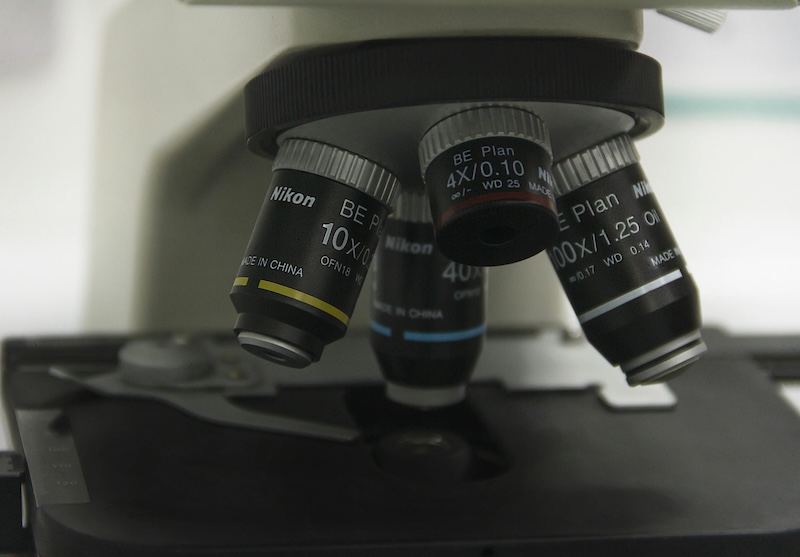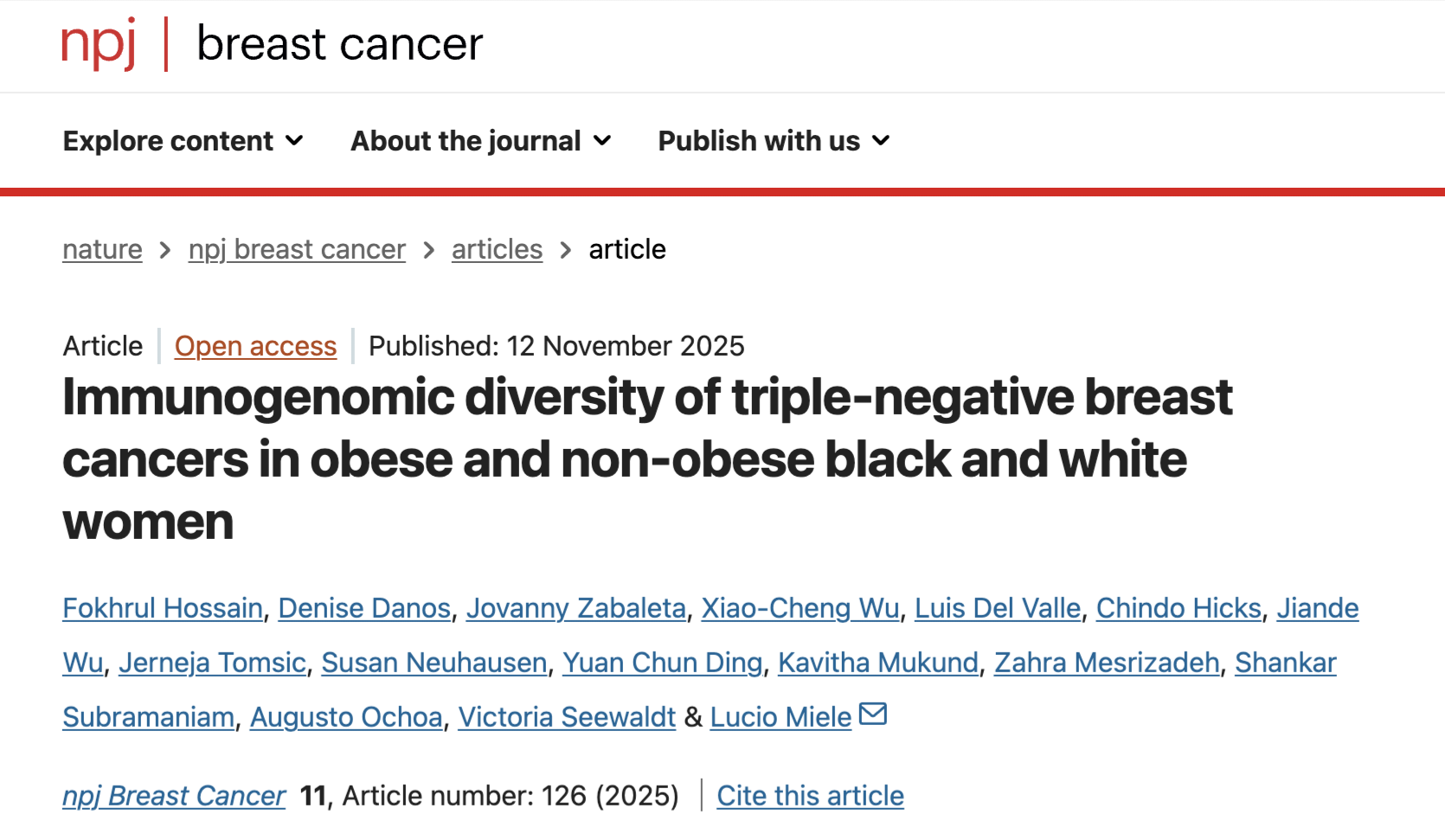.png)
SUCRE: Inspiring the Next Generation of Louisiana's Cancer Researchers
Pictured: Lockley McElroy, Elinor Romaguera, Marie Howe, Sihyoung Kim, James Bailey, Shawn Sutherland, Tessa Peterson, Nathan Xiang, Walter Wilber, Cheyenne Roberts, Trinity Tanner, SUCRE Director Charles Wood, PhD
An important facet of the Louisiana Cancer Research Center’s (LCRC) mission to reduce cancer burden across Louisiana is its commitment to cultivating the next generation of scientists. One of the most impactful ways this mission comes to life is through the LCRC Summer Undergraduate Cancer Research Experience (SUCRE)—an immersive, eight-week program for qualified undergraduate students.

SUCRE places students in research labs where they work side-by-side with faculty mentors at Louisiana State University Health Sciences Center–New Orleans, Tulane School of Medicine, and Xavier University of Louisiana. Each SUCRE Fellow is assigned a research project aimed at deepening their understanding of cancer—how it starts, spreads, and how to prevent and treat the disease. At the end of the program, the students present their findings in a professional setting, gaining valuable experience in both lab work and scientific communication.
The 2025 SUCRE Cohort
This year’s group includes eleven motivated Fellows, each with a unique background and a shared goal: to gain hands-on lab experience that will help shape their futures While many plan to pursue careers in medicine or biomedical research, such as in cancer biology, population science, or public health, others are using SUCRE as a proving ground—to see if a career in cancer research is truly for them.
James Bailey and Sihyoung Kim, both students at Xavier University, are taking advantage of the opportunity to explore their future paths. “I see this as a great opportunity to explore my interest in cancer as well as grow my proficiency in the lab setting,” Bailey said. “I want to gain in-depth knowledge of a specific mechanism of cancer treatment.” Kim added, “I hope to learn more about and advance my career in cancer research.” Marie Howe, a senior at LSU, said she is looking forward to gaining hands-on experience in a wet lab and "to see if research is the right direction for me.”

Lockley McElroy a senior at Tulane University, also works part-time at the LCRC during the school year, which introduced her to the work being done there. “I am well aware of the amazing work that is going on and I am so grateful for the opportunity to be a part of it."
Tessa Peterson, a senior from Tulane University, has previous experience in a pediatric acute myeloid leukemia (AML) lab and is eager to expand her scope. “This opportunity will help me bridge my bench research with broader, population-level approaches to cancer prevention and control.”
For Cheyenne Roberts, a junior at the University of California Los Angeles, SUCRE is more than a research experience—it’s a chance for Fellows to take charge of their own learning. “I really value learning by doing...I'm hoping to gain practical skills that I can use as I work toward becoming a physician assistant.”
Elinor Romaguera, a sophomore at LSU, is focused on the big picture. “I want to learn more about how to conduct and communicate research professionally—and as well as related postgraduate opportunities.”

Shawn Sutherland, a senior at Syracuse University, was thrilled to find a prestigious opportunity that was also close to his family who live in New Orleans. “It is super convenient—I can spend time with family and friends while doing something meaningful. I actually heard about SUCRE from a parent in my little brother’s class who works at Tulane’s Cancer Research Center."
Trinity Tanner, a junior at the University of Alabama, is a former junior Olympic gymnast who turned her focus to biomedical research after an injury ended her athletic career. “I plan to pursue a master's degree in biomedical engineering and SUCRE offers the mentorship and guidance I need to explore potential career paths."
Walt Wilber, a senior, at the University of Alabama, is branching out from computer science to explore the intersection of biology and business. “I thought it would be interesting to see how biological and medical research differ from computer science research.”
Nathan Xiang, a sophomore at Tulane University, is driven by a curiosity in the public health side of cancer research. “I'm always open to new ideas so through the SUCRE program, I hope to learn new statistical methods to help people."
As these eleven young researchers spend their summer in the lab, they’re not only learning about cancer research—they’re shaping their own futures, too.




